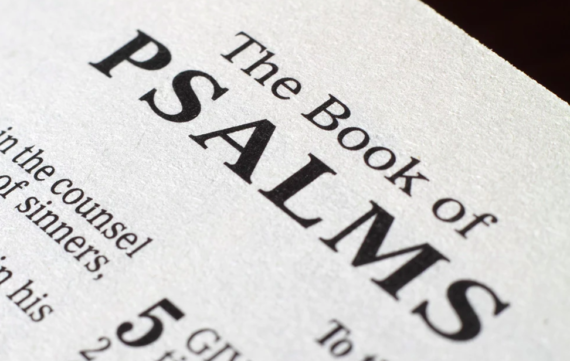Psalm 28
The structure of this psalm is interesting. It opens with a statement of praise and a cry for mercy.
“To you, O Lord, I call; my rock, be not deaf to me, lest, if you be silent to me, I become like those who go down to the pit. 2 Hear the voice of my pleas for mercy, when I cry to you for help, when I lift up my hands toward your most holy sanctuary” (1-2).






This is followed by two closely related requests: for protection from enemies and for the punishment of those enemies.
“Do not drag me off with the wicked, with the workers of evil, who speak peace with their neighbours while evil is in their hearts. 4 Give to them according to their work and according to the evil of their deeds; give to them according to the work of their hands; render them their due reward” (3-4).
The next verse expresses the conviction that the Lord will fulfil the second of those requests (the punishment of enemies). The final four verses express confidence that the Lord will indeed protect the psalmist himself and also all of the Lord’s people.
“Because they do not regard the works of the Lord or the work of his hands, he will tear them down and build them up no more” (5).
“Blessed be the Lord! For he has heard the voice of my pleas for mercy. 7 The Lord is my strength and my shield; in him my heart trusts, and I am helped; my heart exults, and with my song I give thanks to him. 8 The Lord is the strength of his people; he is the saving refuge of his anointed. 9 Oh, save your people and bless your heritage! Be their shepherd and carry them forever” (6-9).
Underlying assumptions
Let us consider for a moment why this makes sense. What is the logic behind the assumption that the Lord will do these things?
It makes sense to appeal to God in this way only if he is an active, living God and he is interested in right and wrong — including the wrong of malicious speech. The psalmist believes both these conditions to be met.
He believes that the Lord is a living and active God. He is not a deist. He does not believe in God primarily as a God who demands the service of man, but as a God who serves man.
He also believes the Lord to be a God who cares about justice. Right and wrong matter to him. He is not a prejudiced God, who will save and protect those who do wrong – if they happen to bribe him with enough gifts and offerings. When God sees injustice, he takes note of it. He may not deal with it immediately. He may allow his people to suffer for a time. He will await their call for his help. But in time he will deliver those who are wronged.
There are two parts to the Lord’s deliverance. To deliver the worshipper from evil, as well as to vindicate his own holiness, the Lord must protect the worshipper from wrong and punish the evil people doing the wrong.
Application to us
We need the confidence expressed here that the Lord will do these things. Knowing, as any sensible person does, that for right to be recognised its antithesis must be punished, we are sometimes tempted to take matters into our own hands.
The increasing violence of Western society is caused by errors in thinking. On the one hand, some engage in violence because they do not believe in God or in eternal consequences of any kind. Such thinking leads some to believe that there is no such thing as right or wrong. It leads others, who are distressed by real or imagined evils, to commit even greater evils in their attempt to stamp out the evil they have noticed. The need to see evil punished can become warped and extended until it becomes an evil itself. Keeping things within bounds requires continual reliance on the Lord.
If we hold a position of authority (and most do, at least within our homes), we must recognise that it is impossible to protect the innocent without punishing the guilty. Within the limits of our authority, we should be willing to punish when it is appropriate.
But we should not exceed the limits of our authority. Ultimately, we must trust God for justice.

